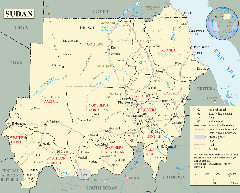Fair Funding? Not Even Close.
Posted 1 Aug 2025 by Walaa Idris
I don’t usually get fired up about council funding formulas. But what’s being proposed right now for Kensington and Chelsea is outrageous—and it deserves everyone’s attention.
The Government is planning to cut more than £80 million from our borough’s funding over the next three years. That’s around 40% of our controllable budget. Let that sink in.
This isn’t about tightening belts or trimming fat. This is a deep, calculated cut that would gut local services—not because we’ve failed to manage our finances, but because we’ve done exactly the opposite. We’re being punished for running things well.
The Flawed Logic Behind the Cuts
Here’s the trick they’re trying to pull: the new “Fair Funding” formula assumes a notional Council Tax Band D rate of £2,000. Ours is actually £1,079—one of the lowest in the country. And that’s something our Conservative council is rightly proud of. We’ve kept taxes low, services efficient, and targeted support where it’s needed most.
But instead of being recognised for that, the formula assumes we should have been charging residents double and uses that fictional figure to justify slashing our funding. You couldn’t make it up.
The Reality on the Ground
Kensington and Chelsea isn’t just a place on a map—it’s home to real people, including many who live in real deprivation. That gets missed in the headlines. The new formula redistributes money away from areas like ours while ignoring local pressures—like sky-high housing costs, a huge daytime population, and the fact that we act as a gateway to London, with all the services and infrastructure that entails.
Street cleaning, waste collection, social care, housing support—these aren’t luxuries. They’re essentials. And under these proposals, they’re all at risk.
Backing the Right Fight
Cllr Elizabeth Campbell, our Conservative Council Leader, is absolutely right to fight this. She’s been meeting ministers, pushing back in the media, and calling this out for what it is: selective de-funding. I stand with her on this.
This isn’t about party politics. It’s about basic fairness. When a well-run council gets hammered for doing the right thing, we should all be concerned.
What You Can Do
The Government is running a consultation on these changes—but the deadline is coming fast: 15 August 2025. If you care about the future of services in our borough, now is the time to speak up.
- Submit your view here: The Fair Funding Review 2.0
- Share this message. Talk to your neighbours. Write to your MP. Let’s make it clear: this is not acceptable.
We’ve worked hard to build a borough that works—for everyone. We’re not about to sit quietly while that’s torn down.
Categories: Royal Borough of Kensington and Chelsea , Economics





 London Bus Route 11
London Bus Route 11